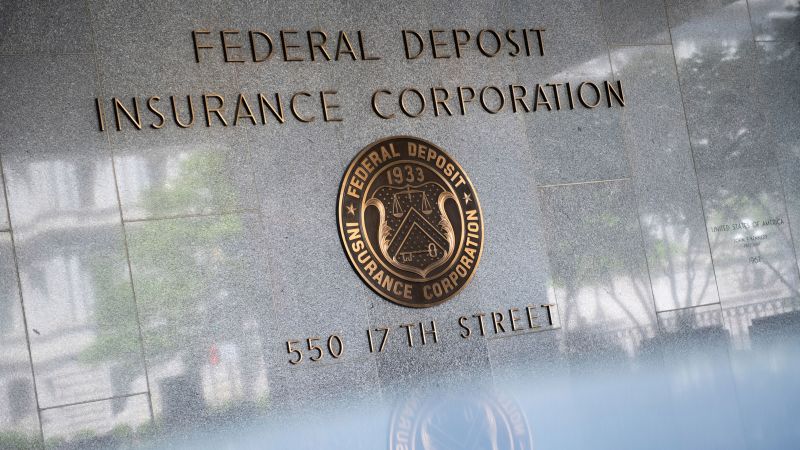
The Federal Deposit Insurance Corporation’s board of directors approved a proposal to raise the fees banks pay to have depositors’ money insured.
This comes after the government insured depositors’ money that exceeded the $250,000 insurance cap at Silicon Valley Bank and Signature Bank to stem the panic that ensued from their failures. In total, that depleted $15.8 billion from the FDIC’s Depositor Insurance Fund (DIF).
Banks that are FDIC-insured pay fees to the fund in exchange for coverage in the event that they fail. To recover the $15.8 billion, the FDIC is proposing levying higher fees on banks that have more than $5 billion in uninsured deposits.
The FDIC is focusing on these banks since they benefited the most from the FDIC’s unprecedented actions in the wake of the collapse of SVB and Signature Bank.
The proposed rule would charge banks 0.125% annually for two years on all their uninsured deposits as of the end of last year after deducting $5 billion. The FDIC estimates that banks subjected to the proposed rule would take see a 17.5% reduction in income over the span of one quarter. That’s assuming that, for accounting purposes banks, record the entire two-year expense over the first quarter a payment is due.
The nation’s largest bank, JPMorgan Chase, would pay around $1.5 billion in additional fees given the bank had around $1.2 trillion in uninsured deposits at the end of 2022, according to FDIC records. A bank that had $10 billion in uninsured deposits would pay $6.25 million a year.
The FDIC estimates that 113 banks would be subject to the proposed fees. Banks with more than $50 billion in total assets would contribute 95% of fees to replenish the DIF, according to the FDIC’s estimates.
The FDIC had initially estimated a bigger hit to the DIF after the bank failures, but it revised the losses downward after receiving “higher anticipated recoveries” from selling off the banks’ assets.
The proposed rule won’t go into effect immediately.
There will be a 60-day comment period. Following that, the FDIC expects the rule to be finalized and take effect at the beginning of next year with the first quarterly payment due on June 28, 2024.
Article From & Read More ( Big banks could face billions more in FDIC fees after bank collapses - CNN )https://ift.tt/9nlmAdt
Business
Bagikan Berita Ini














0 Response to "Big banks could face billions more in FDIC fees after bank collapses - CNN"
Post a Comment